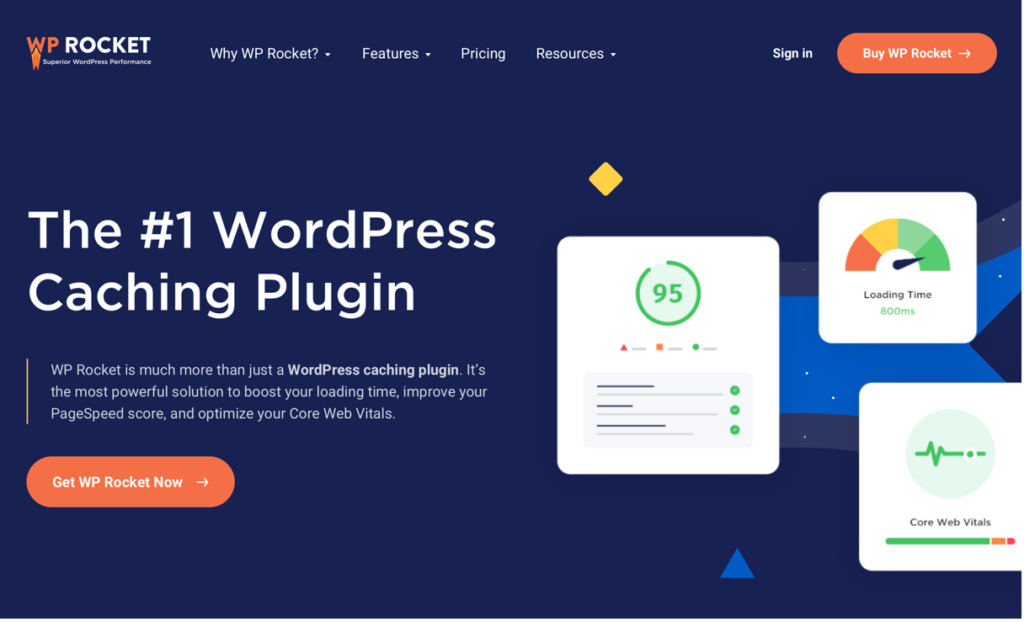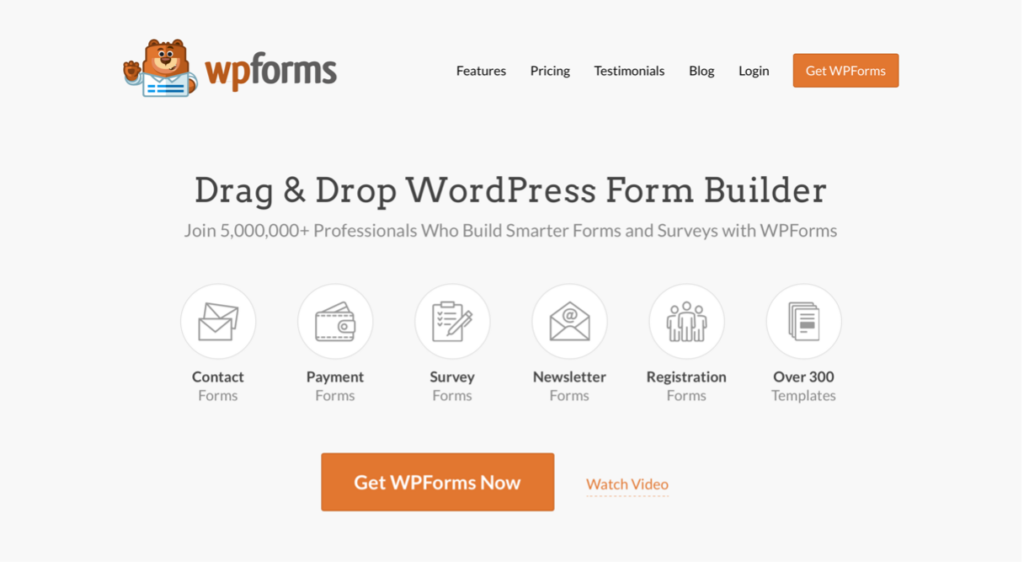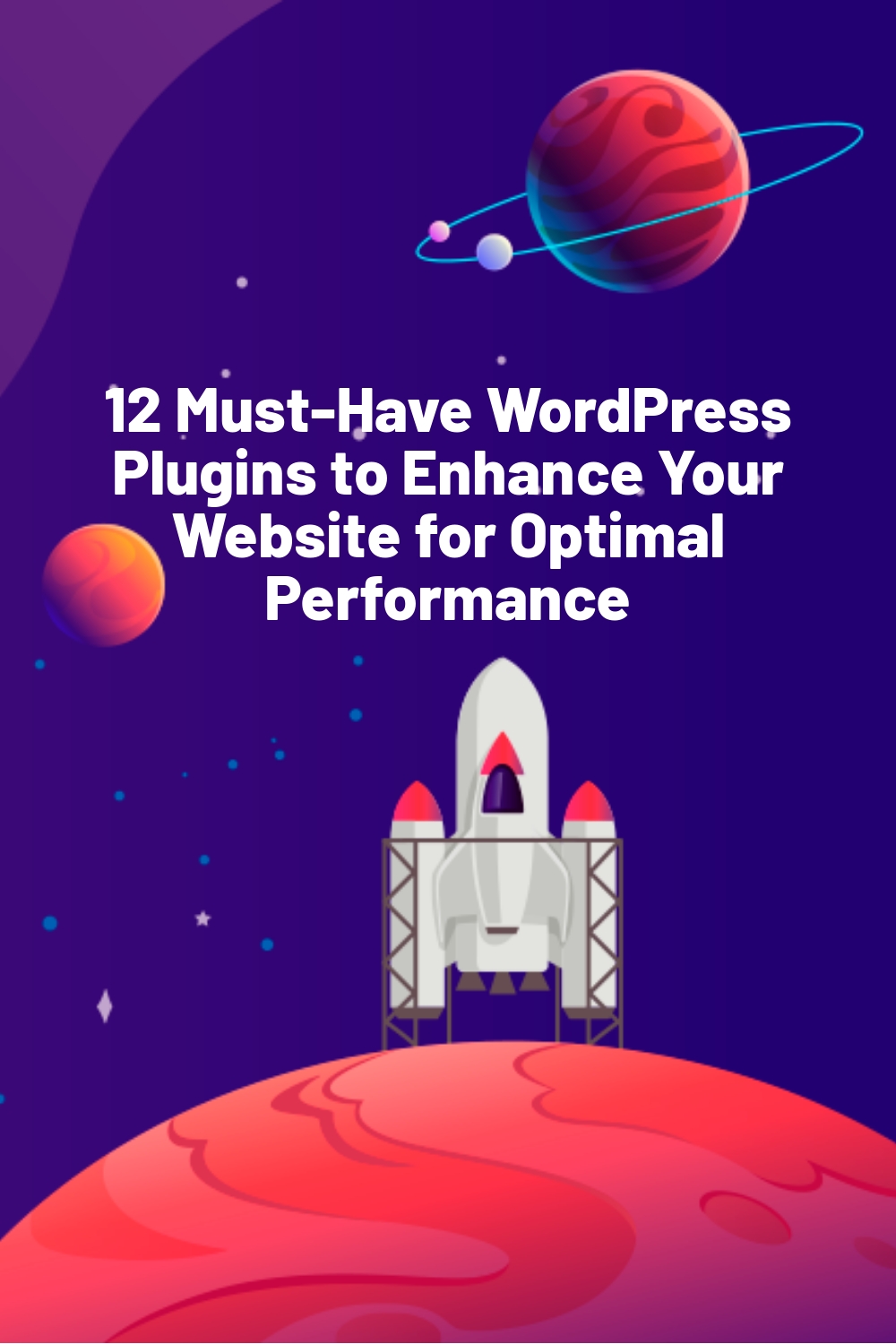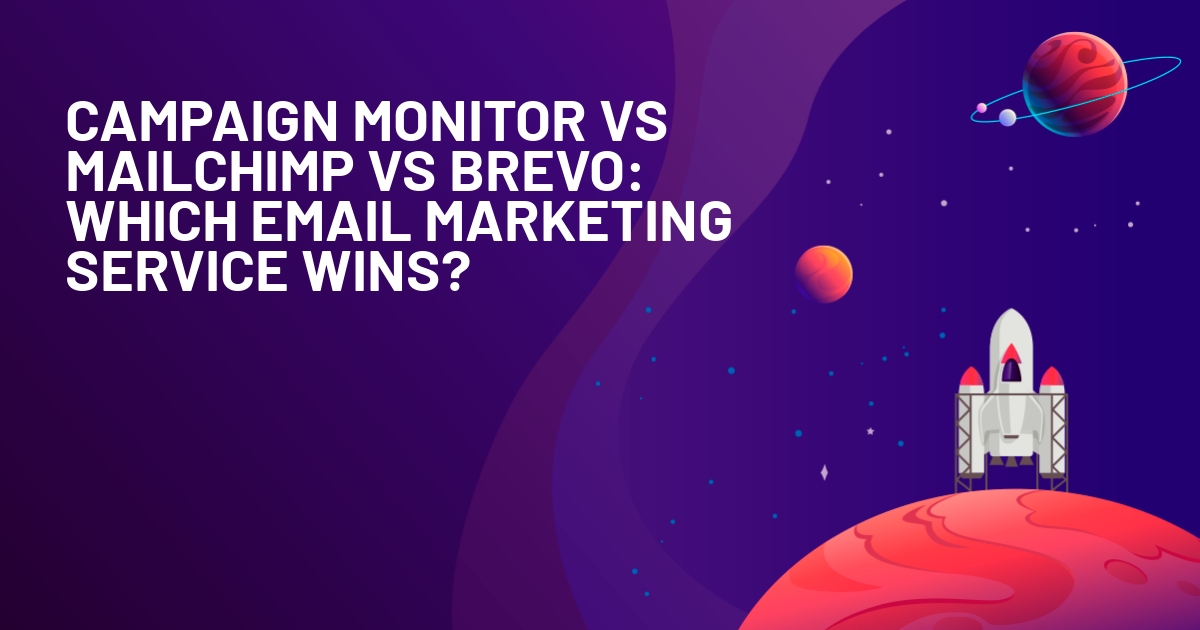WPLift is supported by its audience. When you purchase through links on our site, we may earn an affiliate commission.
12 Must-Have WordPress Plugins to Enhance Your Website for Optimal Performance
People often ask me for my opinions on what I believe are the most essential WordPress plugins. In fact, it is such a common question that I decided it’s high time to do an article on the subject!
So, let’s get straight to it.
The Importance of Plugins
Unless you are adept at coding and can create sites from the ground up, your best option is to use WordPress and tailor it to your needs with a carefully chosen theme and some plugins to add the functionality you need.
Sure, you could build a site just with WordPress and a basic theme and no plugins. However, it will have many problems, including:
- It will be super-basic with virtually no functionality
- Customization options will be severely limited
- It won’t be particularly secure, being susceptible to hackers and other cyber attacks
- It will not be search engine optimized
Plugins not only increase the functionality of WordPress, but they also help keep it secure and optimized for search engines and speed. Furthermore, they help keep things properly maintained and allow you to recover your site should you suffer a major catastrophe.
Many Plugins Versus The Clean Approach
There are advantages and disadvantages to having the functionality many plugins bring versus keeping things to the absolute minimum and sacrificing features in favor of speed.
Of course, the ‘clean’ (i.e., few plugins) approach will reduce bloat on your site. However, chances are, it will also decrease functionality, and you may sacrifice some key features also.
On the other hand, while having many plugins will give you all your desired features, it also comes at a price. Plugins can bring issues like:
- Extra bloat that can impact your site’s performance
- As plugins are created by different developers and updated at varying times, you may encounter conflicts between them, your theme, and the WordPress core
- Despite there being plugins specifically designed to enhance security, plugins can actually render your site more vulnerable
You could try replacing multiple plugins with a single one. That would reduce the bloat, but you may either lose some of the functionality you need or gain loads of extras you will never use.
Alternatively, you could switch to a different theme that integrates more of the functionality you need. That will help reduce your reliance on plugins.
As a rule of thumb, only install the minimum number of plugins you need to get the functionality you require and avoid ones with tons of features you will never use.
For further reading on the subject, please check out “How Many WordPress Plugins Are Too Many in 2023? The Answer Might Surprise You” on WPLift.
My Recommended Essential WordPress Plugins
Here are a dozen plugins that I consider to be essential on any WordPress website.
Please understand that these are only recommendations. Which you ultimately use (if any) really depends on what you want out of your site and your personal preferences.
Security: Wordfence

Kicking off my list of essential WordPress plugins is Wordfence. This is a popular freemium security plugin that offers basic protection in the free version and considerably more in the paid plans.
The free version could be sufficient for many applications as it includes things like scheduled security scans (albeit only every three days), plugin and theme vulnerability monitoring, intrusion alerts, file change detection, protection against brute force attacks, and more.
WordFence ‘Premium’ costs $99 per year and adds unlimited security scans, real-time IP and country blocking, and support. However, two further paid plans are available.
‘Care’ ($490 per year) adds detailed reporting, plus the developer does things like installation, configuration, optimization, audits, malware clean-ups, etc. for you. ‘Response’ ($950 per year) enhances Care with a one hour response time and 24/7 incidence reporting.
For some alternatives to Wordfence, please check out the WPLift article “3 Best WordPress Security Plugins to Lock Down Your Site.”
Page Builder: Elementor

Page builders are an emotive subject, with everyone having their personal favorite and complaining about the rivals for having performance issues, bloat, etc.
Since it was first introduced in 2016, Elementor has received more than its fair share of criticism. Back in the day, some of that criticism was justified. However, the developer has taken great strides to iron out the issues, and Elementor has now been used to build over ten million WordPress sites.
Elementor is simple to use, thanks to drag and drop. What’s more, it gives you considerable control over your content’s design and layout, and the customization options are vast.
The free version includes a very usable feature set, including a library of pre-built templates, numerous widgets, several ready-made website ‘kits,’ and much more.
The Elementor Pro add-on costs from $49 per year. I think that is excellent value, as it takes the features list to another level, with things like theme, form, and popup builders, more templates and widgets, dynamic content, more customization options, etc.
WPLift recently reviewed Elementor, and you can read that here.
You can find eight alternatives to Elementor in the WPLift article “9 Best WordPress Page Builder Plugins Compared (Based on Real Experience).”
Caching & Performance: WP Rocket

Next on my list of essential WordPress plugins is WP Rocket, a premium-only caching plugin that helps improve your site loading speed. Sure, there are free options available, but WPRocket is one of the simplest to use as it is plug and play.
As well as helping improve page loading times, WP Rocket also includes image lazy loading and database optimization tools, meaning you don’t need separate plugins for those. It also deals with page and browser caching and GZIP Compression, so you don’t have to.
WP Rocket costs $49 for one site per year, $99 for three, or $249 for unlimited domains. That’s excellent value, given you basically get three plugins in one, all of which will help improve your site’s performance and please Google. Furthermore, you also get premium support.
You can read WPLIft’s full review of WP rocket here.
Please check out “10 Best WordPress Caching Plugins to Boost the Speed of Your site in 2023” to read about some alternatives to WP Rocket.
Backup: UpdraftPlus

Next on my list of essential WordPress plugins is UpdraftPlus. This is an excellent freemium backup plugin that offers useful functionality even in its free form.
With the free version of UpdraftPlus, you will be able to automatically run scheduled backups of your WordPress database and files and store them in an external service such as Google Drive, FTP, or Dropbox. Furthermore, should the unthinkable ever happen, restores are super-simple.
Upgrading to the ‘Premium’ version costs a very reasonable $70 per year for two sites (price drops to $42 after the first year.) Premium brings tons of extra features to the table, including incremental backups, more storage options, website cloning and migration, etc.
The free version of UpdraftPlus is a great starting point for most WordPress site owners that can be upgraded for relatively little money when you crave more functionality.
For some alternative backup plugins, please see this article “8 Best WordPress Backup Plugins to Keep Your Website Data Secure.”
Form Building: WPForms

There are plenty of forms plugins available, but WPForms is one of the most versatile and easiest to use. Its drag-and-drop editor makes form creation an absolute breeze whether you are a WordPress beginner or expert.
The free version would be perfect for many users, allowing you to create unlimited simple forms like feedback or contact forms.
An upgrade to a paid plan would be necessary for fancier and more sophisticated forms. These currently start from $39.50 per year but allow you to create more advanced forms using features such as pre-made customizable templates and conditional logic. Furthermore, the paid plans lose the WPForms branding, plus you will receive email notifications whenever a form response is submitted.
Check out WPLift’s full WPForms review for a more detailed look at what the plugin can do.
Gravity Forms is an excellent alternative to WPForms. Check our blog on “WPForms vs Gravity Forms: Which Form Builder Should You Choose in 2023?” to make the right decision.
SEO: SEOPress

Search engine optimisation plugins are undoubtedly essential to any WordPress website.
I used to be a Yoast SEO fan, and while I still think it is a great WordPress SEO plugin, I recently discovered SEOPress and have been converted. While both both are pretty similar in what they offer, for me, SEOPress has the edge.
For starters, the free version of SEOPress allows you to optimize for unlimited keywords instead of just one in the free version of Yoast SEO. SEOPress also provides complete nofollow management, in contrast to Yoast SEO’s basic provision. Furthermore, SEOPress’s more sophisticated readability check is also worthy of mention.
Both have user-friendly interfaces, and both use a traffic light system to show where things need improving. The only thing I don’t like so much in SEOPress is having to keep pressing a refresh button – Yoast SEO does everything in real-time.
Price-wise, the Pro version of SEOPress costs $39 per year and includes tons of extra features over the free version. These include a broken links detector, extensive redirect management, more sitemaps (such as video,) and more. Best of all, that $39 is not just for one site; it is for unlimited domains. In contrast, Yoast SEO costs $99 per year per site.
Alternatives to SEOPress include Yoast SEO, All in One SEO, and The SEO Framework. Furthermore, please click here for some helpful tips on optimizing your site for search engines.
Email List Building: SendinBlue

SendinBlue is a freemium full-service email marketing service that helps grow your email list and allows you to email subscribers. What’s more, automated emails are also possible, and you can do everything from your WordPress dashboard.
With the free version of SendinBlue, it is possible to create opt-in forms and Email and SMS marketing campaigns, plus you can also chat with users. It also includes robust contact management and marketing automation features.
Upgrading to a premium plan starts from $25 per month, which rises based on email volume. The premium upgrades include extra features such as A/B testing, advanced statistics, and support.
WPLift did a full review of SendinBlue back in 2020, and you can read that by clicking here.
Alternatives to SendinBlue include Campaign Monitor and Mailchimp. You can find a comparison of the three in WPLift’s article “Campaign Monitor vs. Mailchimp vs. SendinBlue: Which Email Marketing Service Wins?”
Analytics: Slimstat Analytics

Google Analytics is now such a monster that many people freak out when they try to use it. Personally, I prefer the simplicity of Slimstat Analytics, which is a free, open-source WordPress analytics plugin.
Although it costs nothing, Slimstat Analytics does not skimp on features. For example, you get a real-time access log that monitors things like server latency page events, bounce rate, etc. You also get a cool world map showing the locations of your visitors. And if you want, you can even include reports in pages, posts, or widgets using shortcodes.
For some alternatives to Slimstat Alternatives, head over to the article “9 Best Google Analytics Alternatives (Free & Paid) in 2023: Is It Time To Switch?”
Image Optimization: Smush

All sites need images, although they are notorious gobblers of storage space and bandwidth. That is why numerous image optimization plugins have sprung up over the years.
So, next on my list of essential WordPress plugins is Smush. While the free version is limited to lossless compression of images up to 5MB, it will be sufficient for many users. What’s more, you can compress unlimited images for free.
If you need more flexibility, Smush Pro costs $6 per month or $60 per year for a single site. That adds many more features, e.g., greater image compression, auto-resizing and scaling, processing images up to 32 MB in size, and image backups. That is perfect for people such as photographers with portfolio sites displaying lots of large, high-definition pictures.
For alternatives to Smush and advice on what to look for in an image optimizer plugin, please see “11 Best WordPress Image Optimizer Plugins to Boost Your Site Performance in 2023.”
Anti Spam: Akismet

The next essential WordPress plugin on my list is Akismet, This excellent free plugin blocks most spam from reaching your site’s comments sections. It works by checking all comments from users and identifying and filtering out any that appear to be spam.
Setting up Akismet is simple. However, you will first need to obtain an API key (don’t worry, you can do that when you configure the plugin.) These are free for personal sites such as blogs. However, commercial sites will need a paid plan, which cost from $120 per year.
I like Akismet because it does a great job of filtering put spam and rarely gets it wrong.
For more anti-spam plugin options, I recommend reading “6 Best WordPress Anti-Spam Plugins to Stop Spammers in Their Tracks.”
Accessibility: WP Accessibility

WordPress website owners often overlook accessibility. However, complying now with the various guidelines and regulations on making sites accessible can save you significant headaches later.
Unfortunately, no one plugin can make your site fully compliant. However, WP Accessibility does help bridge many of the accessibility ‘gaps’ that plague many WordPress themes.
WP Accessibility is a free plugin that requires no specialist knowledge. It has plenty of helpful features, including a tool to locate images with missing alt attributes, a facility to insert ‘read more’ links to post titles, etc. What’s more, the plugin can generate detailed reports on the accessibility of your site.
For some great alternatives to WP Accessibility, please check out this article on “10 Best WordPress Accessibility Plugins in 2023: Help Everyone Use Your Site.“
Social Sharing: AddToAny

Last on my list of essential WordPress plugins is AddToAny. This free plugin makes adding social sharing and follow buttons to your site quick and easy. Over a hundred social networks are covered, including all the popular and some lesser-known ones. What’s more, you can use the official buttons or your own if you prefer.
The plugin also includes social share counters, while universal email sharing allows users to share via makes mail platforms such as Gmail, Yahoo Mail, AOL Mail, and Hotmail.
For some alternative social plugins to AddToAny, please check out the article “12 Best Social Media Sharing Plugins for WordPress to Supercharge Your Online Presence.”
What Are Your Favorite WordPress Plugins?
So, there you have twelve plugins that I feel are necessary when building a WordPress website. Of course, you may not need them all, and when it comes to plugins, less really is more. However, those I have suggested will ensure your site is protected, optimized for speed and search engines, gives a great user experience, and you will be able to quickly recover from a major disaster.
What are your favorite WordPress plugins, and which do you consider essential? As always, comments dropped below are always appreciated.









Hi, Colin
this is great round up of essential plugins. I agree with you for most counts here, and use most of these plugins myself.
I feel like the sheer volume of available WordPress plugins is both a blessing and a curse. You get the large pool to choose from, but in the same time, how do you choose the right plugin for your needs? This is especially difficult for newcomers (not pun on your last name :-) ).
One of the biggest dilemmas I face when choosing a plugin is “is it better to use one big plugin to cover multiple functionalities, or several small ones and combine them?”. I would really like to hear your opinion on this. I tend to lean more on the side of small plugins.
For example, instead of using one bug security plugin like Wordfence, I like to combine smaller ones for 2-factor authentication, limiting logins and hiding login URL. I wrote about it blog post similar to this, about essential plugins for blogs. I would really like to hear your opinion about it.
I’ll make sure to share this post. Keep up the good work!
“is it better to use one big plugin to cover multiple functionalities, or several small ones and combine them?”
It’s all code so I’m not sure there’s any hard and fast rule. It depends if you actually need all the functionality in the big one or some is going to waste.
E.g. you could take the code from one big plugin and divide it into multiple small plugins. Doesn’t magically make it more efficient, though (AFAIK).
Hi, Colin
This plugin “Quick Page/Post Redirect Plugin” hasn’t been tested with the latest 3 major releases of WordPress. It may no longer be maintained or supported and may have compatibility issues when used with more recent versions of WordPress.
I think this one is a better alternative: https://wordpress.org/plugins/redirection/
Last updated: 6 days ago
Active installations: 1+ million
Tested up to: 4.9.8
Hi, Colin
I’d like to add these very useful plugins in addition to your article since they are still the most used plugins so far all over the world.
All plugins are really very useful. WordPress has made it really easy to apply different features with the help of plugins. Thank you so much for sharing this. I am using most of the plugins from the list.
When I see ‘WordPress’ written incorrectly 3 times on the opening ‘Hero’ screen, it makes me think you don’t know much about it. Spelling & punctuation aren’t everything, but can’t you write the overall main most important subject of your blog the correct way?
Hi Patty,
you are 100% right.
We totally overlooked that. It’s something new we are trying, and was written by someone who is very good in CTA writing, but not so much an expert in WordPress…. We should have been more on top of this!
Thanks for letting us know.
Wonderful job Colin! Thanks for sharing.
I would like to suggest you to try out one more plugin which is known as Blog Designer Pro. With the help of this plugin can make your blog look beautiful and gorgeous. It provides you many stunning features to help you create a perfect and professional blog. To know more, visit here: https://wpblogdesigner.net/
Great job Colin! Thanks for sharing.
I would like to suggest you try out more plugin which are an essential plugin for your site which makes your site perform better. To know more, visit here: https://makewebbetter.com/